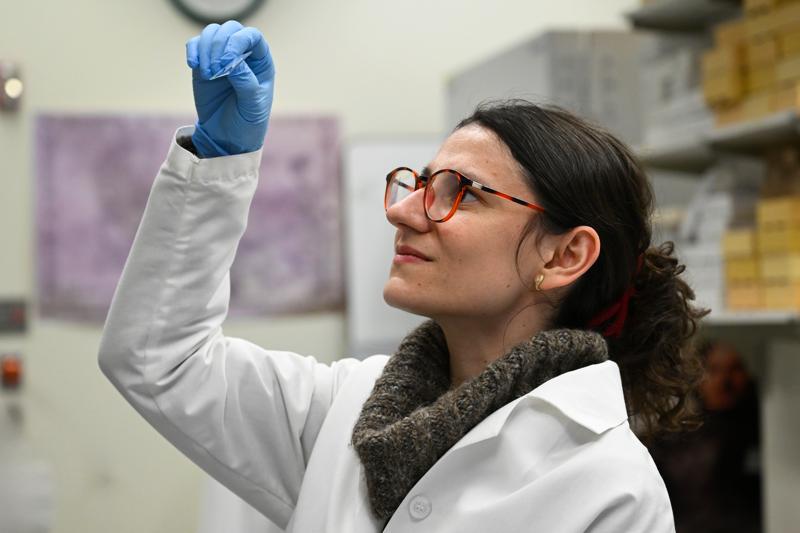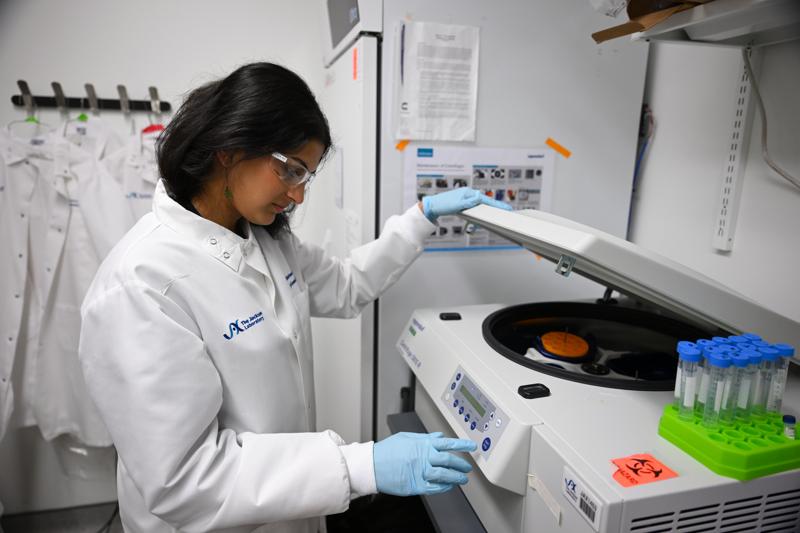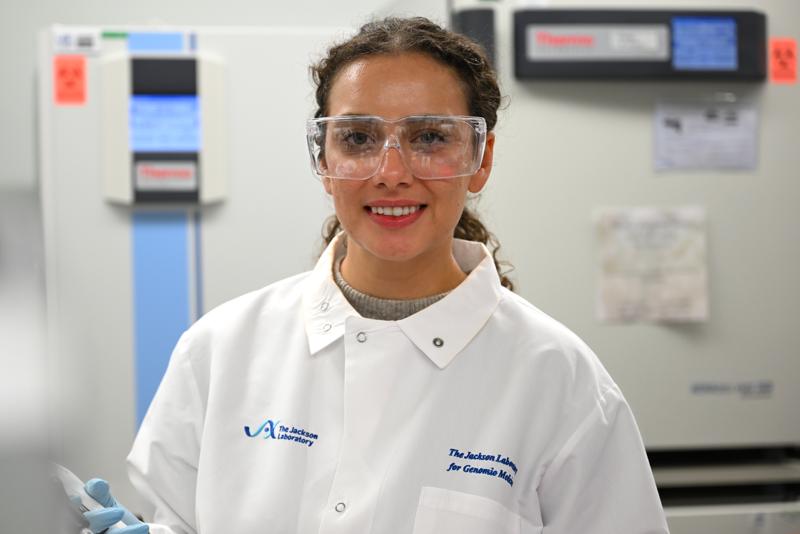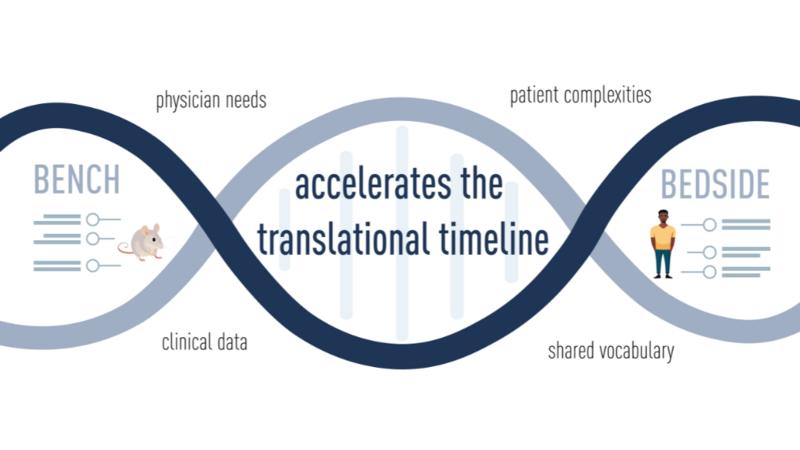New JAX-led course gives early career researchers a front-row seat to personalized cancer care
Article | October 16, 2025
(Bar Harbor – October 16, 2025) Researchers and clinicians often work toward the same goal: improving human health using the best scientific tools available. Yet their paths don’t always intersect. Researchers may not have the opportunity to fully understand how the intricate, complex work they conduct in the lab impacts a patient’s life.
A course developed by The Jackson Laboratory’s Clinical Education team and the Maine Cancer Genomics Initiative (MCGI) aims to change that. Designed for early career cancer researchers, the program bridges the gap between research and patient care, reflecting JAX’s broader mission to promote “bench to bedside” initiatives.
This week, a manuscript outlining key takeaways from the course – Genomic Tumor Boards for Early Career Researchers – was published in Nature Biotechnology. Co-authored by members of both teams, the manuscript appears in the journal’s “Career Feature” section, which highlights innovative and impactful career development opportunities in science, medicine, and biotechnology.
The piece emphasizes key takeaways from the course, which offers participants a rare opportunity to observe real-world clinical consultations and engage in thoughtful discussions about cancer treatment. It was designed to strengthen trainees’ ability to communicate scientific findings to clinicians, deepen their understanding of the clinical relevance of their work, and introduce them to new career pathways, all while gaining insight into the cancer patient’s journey.
“This course provides the support necessary for participants to make connections between research and patient care that they wouldn’t get the opportunity to make otherwise,” said Kate Reed, director of Precision Oncology Education at JAX. “We are able to walk the participants through all the clinical possibilities, providing memorable takeaways and new skill sets – as outlined in this manuscript – that could inform their careers for years to come.”
First piloted in 2022, Genomic Tumor Boards for Early Career Researchers uses MCGI-designed genomic tumor boards (GTBs) as a centerpiece to introduce research trainees to the complexities of applying genomic information to patient care. These collaborative sessions allow oncologists and precision medicine experts to review individual cancer cases and explore treatment options based on genomic testing by connecting Maine-based oncologists with leading academic institutions to discuss complex cases and consider innovative approaches, including clinical trials.
“It truly brought everything together for me—learning how a basic scientific finding can be used to inform personalized medicine and treat an individual patient,” said Sara Halili, a participant in the fall 2025 cohort, and M.D./Ph.D. student at UConn Health studying the molecular genetics of parathyroid tumors in Andrew Arnold’s lab.
Course participants are invited to observe as many GTBs as they wish, alongside five structured learning and discussion sessions. To date, four cohorts have completed the course, with participants from institutions including The Jackson Laboratory, University of Maine, University of Connecticut, Tufts University, and Cold Spring Harbor Laboratory.
The Nature Biotechnology manuscript highlights concrete findings based on participant data, noting improvements in their awareness of clinical context, such as how foundational research can directly impact clinical decision-making, and in their ability to communicate their own research. By immersing themselves in these multidisciplinary conversations, trainees gain firsthand exposure to both the challenges and the immense benefits of applying genomic data to patient care.

“This was the first time I saw such an interdisciplinary team come together and contribute positively to all aspects of the patient outcome,” said Isha Walawalkar, another fall participant, who is an M.D./Ph.D. student studying how alternative mRNA splicing shapes gene expression in cellular pluripotency, differentiation, and cancer in Olga Anczukow’s lab.
Course participant Rei Bufi, an MD/PhD student studying progression of glioblastoma through immunosuppression in the aging brain in Fred Varn’s lab, said the course helped her think far beyond basic research. Participants discussed details like a patient’s location and other logistical factors; accessibility matters when considering the best treatment option, Bufi noted, and the best treatment may be the one that is both scientifically sound and accessible to that particular patient.

Course organizers plan to continue offering the class to early career cancer researchers and believe its format could be adapted to other areas of study. In addition, the team is pursuing funding for a larger implementation of the course.
“I was always interested in bridging the gap between research and patient care,” said Leah Graham, associate director of MCGI. “Patient care can be so different than what students imagine it is. By giving them a window into that world, they discover just how unique and complex each and every patient truly is.”
To keep up to date about the next iteration of the course please email [email protected].
Learn more

Study indicates that cancer patients gain important benefits from genome-matched treatments
Maine cancer patients experienced better outcomes following genomic tumor testing to guide targeted therapy strategies; but a gap between testing and clinical delivery still exists.
View more
From bench to bedside and back again: Bridging the gap for translational research success
“Bench to bedside” refers to the translation of scientific discoveries — made at the research bench — into practical applications for improved patient care at the bedside.
View more